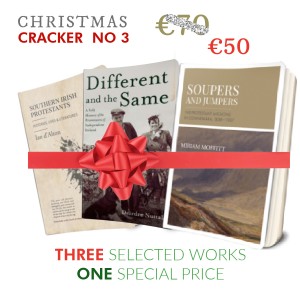CHRISTMAS CRACKER NO. 3
- ISBN: 978099
- Availability: In Stock
-
€70.00
Related Products
Who’s Who in the Dublin Rising 1916
At noon on Easter Monday, 24 April 1916, approximately 1000 men and women stormed buildings in centr..
€19.00
Tags: CHRISTMAS CRACKER NO. 3


